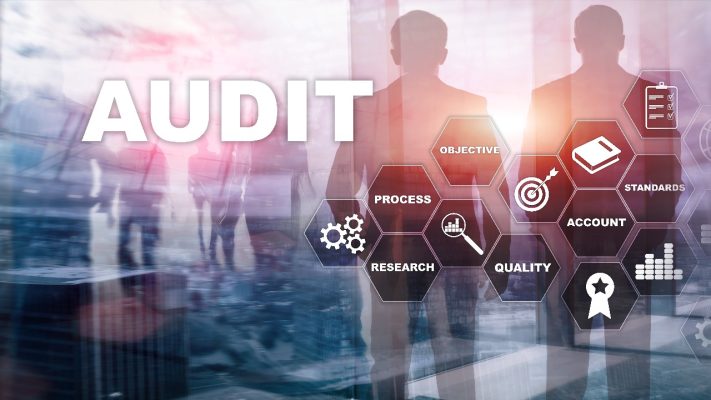What is IT Audit
In today’s IT Audit in digital world, most businesses depend on technology to run their daily operations whether it’s storing customer data, processing payments, or managing communication. This use of technology helps companies work faster and more efficiently, but it also comes with serious risks.
Problems like Cyber attacks, Data leaks, and System Failures are becoming more common. If these issues aren’t handled properly, they can lead to lost money, damaged reputations, and even legal trouble. At the same time, businesses must follow strict rules and standards, such as GDPR, ISO 27001, UUPDP From indonesia or other data protection laws, depending on the industry and country.
That’s why IT Audits are so important. An IT Audit is a detailed check-up of your company’s technology systems. It helps you find weak spots, improve security, and make sure everything is working as it should. With regular IT audits, businesses can avoid problems, protect sensitive data, and build trust with their customers and partners.
An IT Audit is a comprehensive examination and evaluation of an organization’s information technology infrastructure, policies, and operations. The goal is to determine whether IT controls protect corporate assets, ensure data integrity, and align with the organization’s overall objectives.
IT audits can cover several areas, including:
- Compliance Audits: These audits assess whether an organization is adhering to relevant laws, regulations, and industry-specific standards related to IT. For example, a HIPAA audit for healthcare organizations or a SOC 2 audit for IT security.
- Security Audits: These audits evaluate the effectiveness of an organization’s security controls in protecting its IT assets and data from unauthorized access, use, disclosure, disruption, modification, or destruction. This includes assessing physical security, logical security, and data protection measures.
- Operational Audits: These audits examine the efficiency and effectiveness of an organization’s IT operations, including system performance, resource utilization, and service delivery.
- Performance Audits: These audits evaluate the overall effectiveness and value derived from IT systems and processes. They assess whether IT investments are delivering the intended benefits and contributing to organizational goals.
- Other Types:
- IT Governance Audits:
These audits assess the effectiveness of an organization’s IT governance framework, which includes policies, procedures, and organizational structures related to IT management. - Software Development Lifecycle Audits:
These audits review the processes involved in developing and maintaining software applications, ensuring they are secure, reliable, and meet quality standards. - Business Continuity Audits:
These audits assess an organization’s ability to maintain critical IT operations in the event of a disaster or disruption. - Privacy Audits:
These audits evaluate an organization’s compliance with data privacy regulations and best practices. - Risk Assessments:
These assessments identify and evaluate potential risks associated with an organization’s IT environment and develop strategies to mitigate those risks.
- IT Governance Audits:
What Does an IT Audit Do?
An Information Technology (IT) audit is conducted to assess whether IT controls are effectively protecting company assets, maintaining data integrity, and supporting overall business objectives. IT Audit activities examine not only logical and physical security, but also business and financial controls related to information systems.
As modern businesses increase in digital technology, IT audits play a critical role in ensuring that information related processes and controls are functioning properly. The main objectives of an IT audit include:
- Assessing the systems and processes used to protect company data.
- Ensuring that IT controls are consistently implemented and properly maintained.
- Identifying potential risks to information assets and determining ways to reduce them.
- Verifying that information management practices comply with applicable IT laws, policies, and standards.
- Uncovering inefficiencies in IT systems and their related management processes.
Why Are IT Audits Important?
In today’s fast-paced digital world, IT systems have become increasingly complex. That’s why IT leaders need to ensure that their infrastructure is operating efficiently, supporting business goals, reducing cybersecurity risks, and meeting all necessary regulatory and industry requirements.
Conducting regular IT audits helps organizations confirm that they are following established standards, best practices, laws, and internal policies. These audits also serve as solid proof of compliance not only for internal stakeholders, but also for customers, regulators, and government agencies.
Another key benefit of IT audits is the independent perspective they offer. Since auditors operate outside the internal IT team, they can assess systems objectively. They review processes thoroughly, pinpoint strengths and weaknesses, and offer practical recommendations to improve performance and security.
Who Needs an IT Audit?
Nearly every organization that relies on information technology can gain value from regular IT audits. These audits offer an independent evaluation of how effectively IT systems are managed, how well security measures are functioning, and whether internal controls are being properly implemented.
Whether assessing overall IT governance or focusing on specific areas like cybersecurity or environmental IT practices, at the same time audits help uncover risks, validate best practices, and support continuous improvement in managing technology resources.
What Happens During an IT Audit?
Understanding the IT Audit Process Step by Step
An IT audit is a structured assessment that reviews an organization’s information technology systems and controls to ensure they are secure, efficient, and compliant. The IT audit process focuses on key areas such as cybersecurity, access management, risk control, disaster recovery, and environmental safeguards.
Auditors examine how well an organization adheres to internal policies and external regulations. They collect evidence to validate the effectiveness of each control. If any gaps are found, the auditor documents them in an IT audit report along with recommendations for improvement and a timeline for corrective actions.
Here’s a step-by-step guide to what typically happens in an IT compliance audit:
- Secure Management Approval
- As i Have shown Before the audit begin, it must be approved by senior leadership. This includes allocating the necessary budget and resources to support the process.
- Create an Audit Plan
- The audit team defines the scope, objectives, timeframe, and the specific IT controls and systems that will be reviewed during the audit.
- Assign the Audit Team Audits can be conducted internally or externally.
- First-party audits are done by the internal IT team.
-
- Second-party audits may be performed by internal audit departments.
-
- Third-party IT audits are conducted by independent, certified external auditors.
- Prepare a Dedicated Workspace
- A room or workspace is typically set up where auditors can conduct interviews, review evidence, and document findings.
- Start the Audit Process
- Auditors meet with the IT department to explain the audit procedures, timelines, and the types of documentation and evidence needed such as system logs, access control lists, or cybersecurity policies.
- Collect Evidence and Work Papers
- During the audit, auditors gather materials like screenshots, policy documents, previous cybersecurity audit reports, and interview notes. These are organized into formal audit work papers for review.
- Compile the IT Audit Report
- After evaluating all evidence, the audit team delivers a comprehensive IT audit report.
This document outlines areas of compliance, identifies risks or deficiencies, and provides clear recommendations along with a proposed timeline for remediation.
Why the IT Audit Process Matters
The IT audit process helps organizations identify security vulnerabilities, improve operational efficiency, and meet compliance requirements. A well-documented IT audit report not only enhances internal accountability but also builds trust with clients, partners, and regulators.
CBQA Global can help
At CBQA Global, we know how important it is for businesses to keep their IT systems secure, efficient, and compliance with any regulation scale for IT Audit and also standard like ISO 27001, (Committee of Sponsoring Organizations of the Treadway Commission) COSO Framework, Swift Customer Security Controls Framework ( CSCF), NIST, UUPDP (Indonesia data protection law). That’s why we offer IT Audit services to help you find risks, fix weaknesses, and make sure your technology supports your business goals. Our experienced team will guide you through the process and give you clear, useful recommendations to keep your data safe and your systems running smoothly.
Let CBQA Global as your trusted partner support your company with expert IT audit services.
Contact us now at +62 8118468777 or Click to register to started.




